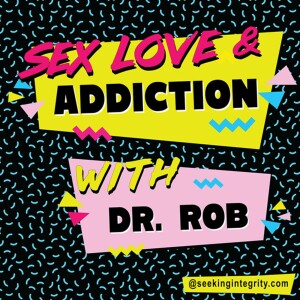
Thursday Feb 02, 2023
Part 1: Addiction , Mental Health, and Psychology with the President of the Society of Addiction Psychology. Dr. Aaron Weiner
Dr. Aaron Weiner, Ph.D., ABPP is a board-certified Psychologist and addiction specialist and speaks nationally on the topics of addiction, behavioral health, and the impact of drug policy on public health. His perspective is informed by years of experience growing and directing addiction service lines for hospitals and healthcare systems, the current state of medical and psychological research, and his own observations in private practice. In this episode. Dr. Aaron talks about process addictions and how they differ from substance addictions.
TAKEAWAYS:
[1:40] A little bit about Dr. Aaron and his career.
[4:10] Addictions and addictive behaviors are very misunderstood.
[7:00] Why do these ‘non-substance’ addictions exist?
[9:10] Sexual content is so easily accessible.
[10:50] Social media apps want to be addicting. Dr. Aaron ran an experiment and moved his icons around so that he wouldn’t click on the same addictive apps over and over again.
[13:00] How do I know if I have a process addiction?
[16:00] It’s easy to lie to yourself to avoid the discomfort or the consequences of your actions.
[18:10] There is a normalization in process behaviors. People want you to ‘binge’ on movies or ‘be addicted’ to video games.
[22:55] Insurance companies will pay for food-eating disorders but won’t consider a gaming disorder.
[25:40] What is an FMRI?
[27:30] A lot of therapists like to pretend the body doesn’t exist from the neck down. Dr. Aaron explains what he means.
[29:50] An addiction forms because the person is just trying to find some way for peace and stability.
RESOURCES:
Cruise Control: Understanding Sex Addiction in Gay Men
Prodependence: Moving Beyond Codependency
Out of the Doghouse by Robert Weiss
QUOTES:
- “Someone’s life can be completely bulldozed by an addiction that has nothing to do with a chemical you put in your body.”
- “When it comes to process addictions and where we draw the line unless we’re having an anger point with consequences, it’s societally defined.”
- “You can see when brains change when someone is compulsive vs. not. It’s very clear that the brain works differently when someone is addicted.”
- “I view addictive behaviors simply as overgrown or malignant coping mechanisms.”
No comments yet. Be the first to say something!